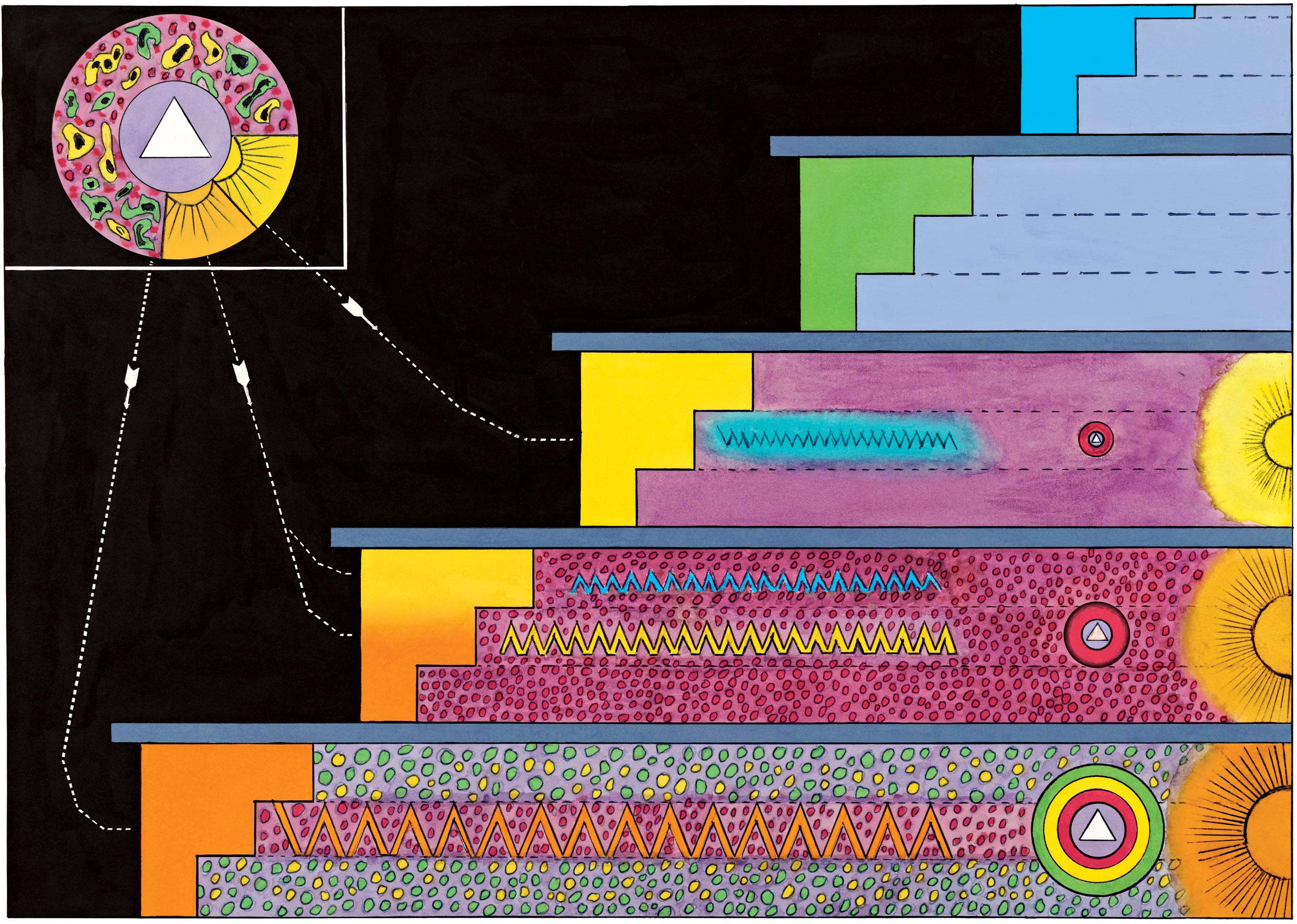The Eternal World Picture, vol. 4
38.7 People's killing of animals and "cannibalism"
How then can people find out what is correct nutrition?
Well, here we must refer to "the eating of the tree of knowledge".
Was the purpose of this eating not that the being should get to know the difference between good and evil?
Since the human being's daily behaviour is exactly the same as the eating of the tree of knowledge, this eating must give rise to an answer.
Does not this eating every day give its originator the experience of what is good and what is evil in its behaviour?
And does the gigantic sphere of disease and bodily deviations from normal, absolute health not show precisely that some aspect of people's behaviour is not good?
How could illnesses otherwise arise?
Has not the human being been warned to an extraordinarily great extent here?
Has it not been said, as previously mentioned, that "Thou shalt not kill"?
It absolutely does not say anything about the human being being allowed to kill animals, and that the fifth commandment prohibits only the killing of people.
And since living on animal food is absolutely not a vital necessity for the human being, it is thus evident here that killing, murdering and flaying animal beings in order to eat or consume their flesh and blood is inconsistent with the law of life for the human being.
How can people expect to have an organism that is totally free of disease or that culminates in radiant health when to such an extent they destroy the organisms of other living beings without it being a vital necessity, and thereby kill these beings' joy in experiencing life?
But people inflict not only more or less painful and deadly illnesses on themselves by virtue of the law of karma, which has the effect that what they do to their neighbours creates their own fate.
People's consumption of animal food inflicts upon the animals a sudden death that takes them by surprise.
This death, which is thus inflicted on the animals by people, is not killing or murder that is caused by revenge, punishment or retribution, such as is usually the case when people murder and kill people.
People's killing of the animals is thus not to any extent whatsoever an act of revenge.
Indeed, animals can sometimes even be downright spoiled by their owners.
But these owners are victims of the collective superstition or blindness that killing animals is not a sin or infringement of the highest morality.
They think that they exist only in order to be killed so as to serve people as food.
And for this reason the owners of these animals feel no pangs of conscience or regret whatsoever about their actions.
And so they continue murdering or slaughtering, and accumulate thereby a correspondingly greater and greater amount of karma, which will be manifested sooner or later in a catastrophic way in the being's daily life.
But what kind of karma does the human being get from killing animals?
It is karma that corresponds exactly to the surprising, sudden death that it has inflicted on the animals by slaughtering or killing them or by its participation in this slaughtering and killing.
This death, which has thus been inflicted on the animals, is, as previously mentioned, not based on any form of hate or any act of revenge.
It is quite devoid of hateful and dark thoughts.
The retribution for killing animals will be such a form of death.
Such a form of death arises under the concept of "accidents".
When a human being is killed in a car accident, it does not mean that it is karma for its having killed a human being with its own driving.
It is, however, a manifestation of the unprotected "karma aura" from its animal killing that here makes its presence felt.
And the human being here meets a surprising, sudden death analogous with the death that the animals meet when they are slaughtered.
All fatal accidents correspond thus to the death one inflicts on animals through slaughtering, hunting, fishing and other methods.
But people do not know here what they are doing.
And even if they are told this, they cannot yet as a rule perceive this information about karma as the truth.
They would regard such information about karma as pure imagination or as a lie.
And for this reason one absolutely cannot rightly blame these beings for this ignorance of theirs.
One cannot blame a blind person for not being able to see.
But karma inevitably changes the being.
Through the returning karma in the form of accidents and sufferings people's emotional state is changed, and a new ability arises that leads to them gradually not having the heart to harm other living beings.
And this then leads to one naturally no longer being able to slaughter or kill animals.
And is it not often the case that if a human being had to slaughter the animals that it eats, then it would become a vegetarian, since it could not slaughter or kill the animals itself?

Symbol no. 38
The Human Being, and Animal and Vegetable Food
